Climate Change
Measures to mitigate agrarian distress in Idukki district of Kerala : A study report by MSSRF
Posted on 10 Jul, 2011 07:38 PM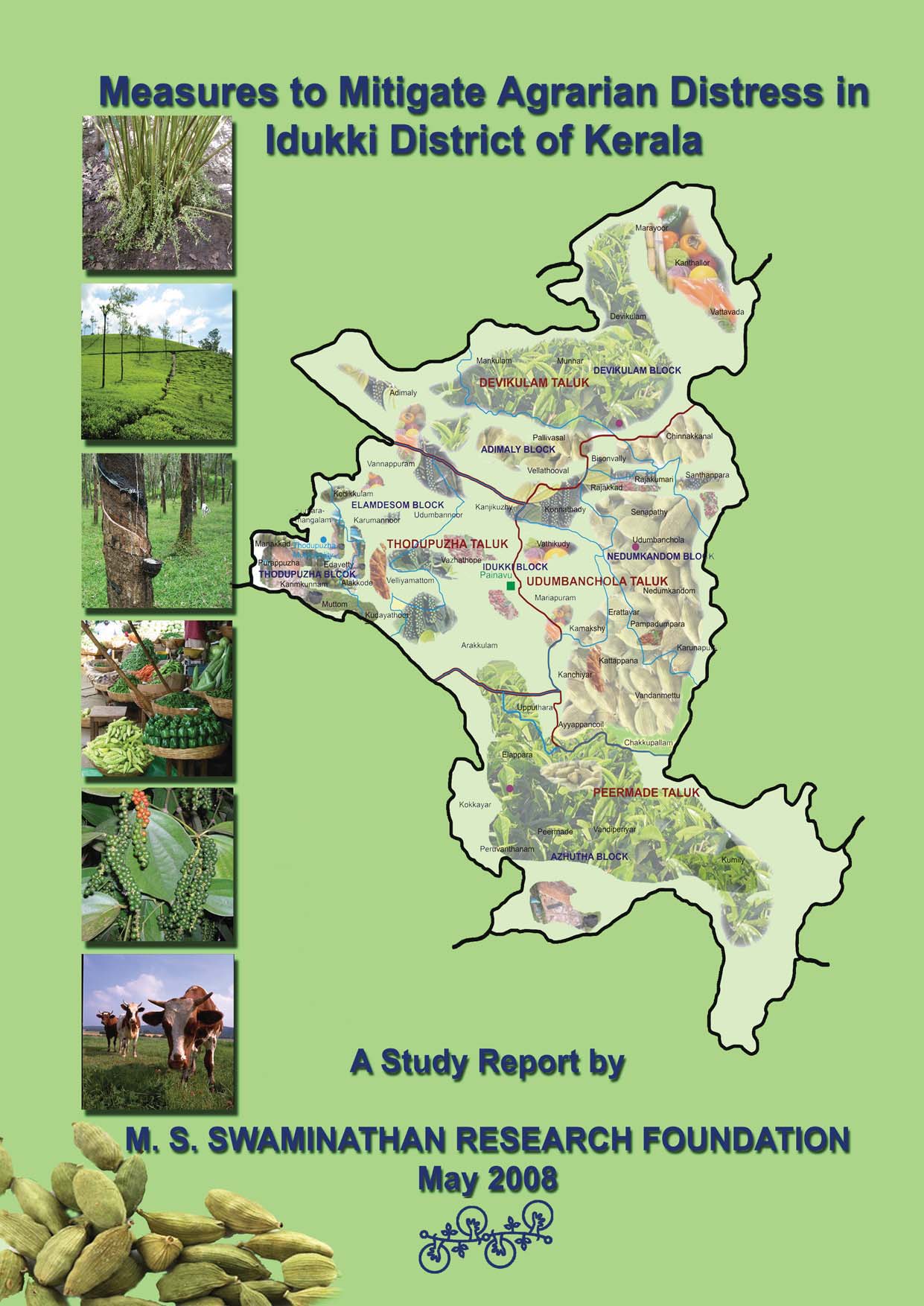 Although Idukki is generally perceived as a ‘spices district’ and a ‘plantation crop district’, about 95 per cent of the farmers here are small with tribal farmers constituting a substantial component. Public investment in agriculture in this district is very poor and this hampers agricultural progress and rural livelihoods in many ways.
Although Idukki is generally perceived as a ‘spices district’ and a ‘plantation crop district’, about 95 per cent of the farmers here are small with tribal farmers constituting a substantial component. Public investment in agriculture in this district is very poor and this hampers agricultural progress and rural livelihoods in many ways.
As a result of high cost of production of major crops and its volatile prices, small farmers who constitute the majority of the farming population have accumulated debt burden exceeding 700 crores. More than eighty per cent of this debt is due to crop loans to small and marginal farmers.
The recommendations in this report are made after giving due consideration to ongoing programmes and resources being made available thereof. These are mainly focused on the small, marginal and tribal farmers and other economically disadvantaged sections. The stress is on sustainability of agricultural production systems and strengthening the regional ecology.
Groundwater governance in India – A case study by World Bank
Posted on 09 Jul, 2011 11:43 AMIt examines the impediments to better governance of groundwater, and explores opportunities for using groundwater to help developing countries adapt to climate change. It attempts to understand the practical issues that arise in establishing robust national governance frameworks for groundwater and in implementing these frameworks at the aquifer level.
The case study focused on the national, state and local levels. At the national and state levels, it analyzed the policy, legal, and institutional arrangements to identify the demand and supply management and incentive structures that have been established for groundwater management. At the local level, it assessed the operations, successes, and constraints facing local institutions in the governance of a number of aquifers within peninsula India, on the coast and on the plain of the Ganges river valley.
Guidelines for drinking water quality - Fourth edition by World Health Organisation (2011)
Posted on 09 Jul, 2011 10:41 AM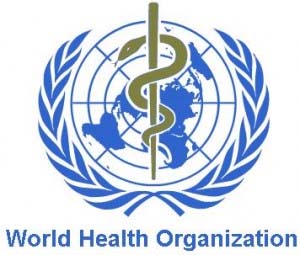 This integrates the third edition, which was published in 2004, with both the first addendum to the third edition, published in 2006, and the second addendum to the third edition, published in 2008. It supersedes previous editions of the Guidelines and previous International Standards.
This integrates the third edition, which was published in 2004, with both the first addendum to the third edition, published in 2006, and the second addendum to the third edition, published in 2008. It supersedes previous editions of the Guidelines and previous International Standards.
This edition of the Guidelines further develops concepts, approaches and information introduced in previous editions, including the comprehensive preventive risk management approach for ensuring drinking-water quality.
National seminar on 'Climate Change: Causes, consequences & strategies for sustainable environment', Vikrama Simhapuri University, July 16 – 17, 2011, Nellore
Posted on 07 Jul, 2011 05:25 PM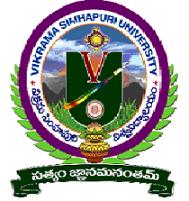 Organizer: Vikrama Simhapuri University
Organizer: Vikrama Simhapuri University
Venue: Seminar Hall, Vikrama Simhapuri University, Nellore
Topics:
- Climate change: Green house effect, health problems, eco-agro cultural changes, costal ecosystem and pollution control
Low carbon strategies for inclusive growth - An interim report of the Planning Commission's expert group
Posted on 28 Jun, 2011 11:44 PM Some policy measures implied by various options have also been indicated. The main sectors examined in the report are power, transport, industry, buildings and forestry.
Some policy measures implied by various options have also been indicated. The main sectors examined in the report are power, transport, industry, buildings and forestry.
Increased concentrations of Green House Gases (GHGs) and the overall warming of the atmosphere has resulted in changing rainfall patterns, disruption in hydrological cycles, melting of ice caps and glaciers, rise in sea levels, and increase in frequency and intensity of extreme events such as heavy precipitation and cyclonic activities.
These have in turn had serious impact on sustainability of water resources, agriculture, forests and ecosystems, affecting the well being of billions of people on earth. Widespread melting of glaciers and snow cover will reduce melt water from major mountain ranges (e.g. Hindu Kush, Himalaya, Andes) where more than one billion people currently live.
Southern regional workshop on climate change, Tamil Nadu Science Forum, July 7 – 8, 2011, Hosur (TN)
Posted on 28 Jun, 2011 06:00 PMOrganizer: Tamil Nadu Science Forum
Venue: Hosur, Tamil Nadu
Description:
Southern Regional Workshop on Climate Change, is being organised by the Tamil Nadu Science Forum on behalf of the All India Peoples Science Network, New Delhi, with support from the Tata Institute of Social Sciences, Mumbai and the Shakthi Foundation, New Delhi.
The Workshop is part of a series of regional workshops aimed at motivating and training activists to create social movements aimed at mitigating and adapting to the galloping climate change. A total of around 50 scientists, resource persons and social activists from the states of Andhra Pradesh, Tamil Nadu, Karnataka, Kerala and Puducherry are expected to attend this event.
Conference against warming the globe 2011, Tamil Nadu, July 22 – 24, 2011, Madurai
Posted on 28 Jun, 2011 05:46 PMVenue: Thamukkam Ground, Madurai, Tamil Nadu
Topics:
- Impact of warming the globe–Scientific and social background
- Politics of global warming
- Interconnection between present development model and warming the globe/deteriorating climate
- Towards alternative development, initiating nature-friendly and human-friendly measures
Release of the latest issue of The Hindu's annual publication - Survey of Indian Agriculture 2010
Posted on 27 Jun, 2011 12:41 PM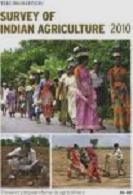 The survey aims to cover major crops and suggestions to farmers on how to take preventive steps to avoid yield loss. There will also be a special article on improvement in living conditions of the rural people.
The survey aims to cover major crops and suggestions to farmers on how to take preventive steps to avoid yield loss. There will also be a special article on improvement in living conditions of the rural people.
Contents
Section-1
Overview:
Enhancing the disaster resilience of agriculture
Prof. M.S. Swaminathan
Drought:
Preparedness to face drought challenges
Dr. V. Rajagopal
Impacts of climate change on growth and yield of rice and wheat in the Upper Ganga Basin – A study by Indian Agricultural Research Institute
Posted on 26 Jun, 2011 01:51 PM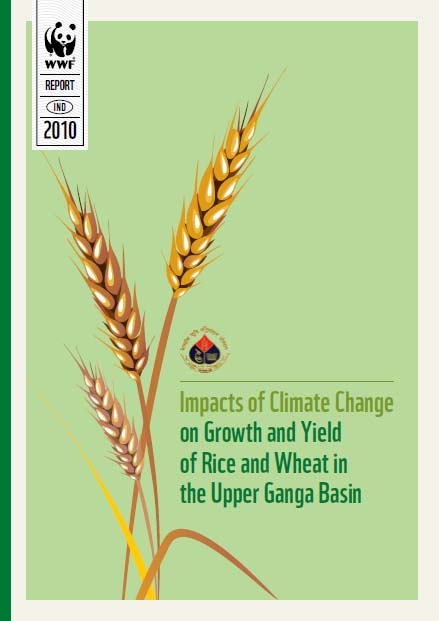 This report presents the results based on climate change scenarios and identifies potential adaptation strategies. The study is part of the ‘Climate Change Impacts on Freshwater Ecosystems in the Himalayas’ (CCIFEH) project, a joint initiative of WWF-India and WWF-Nepal, supported by WWF-Netherlands and aims to study and understand climate change impacts on freshwater ecosystems, livelihoods and the economy.
This report presents the results based on climate change scenarios and identifies potential adaptation strategies. The study is part of the ‘Climate Change Impacts on Freshwater Ecosystems in the Himalayas’ (CCIFEH) project, a joint initiative of WWF-India and WWF-Nepal, supported by WWF-Netherlands and aims to study and understand climate change impacts on freshwater ecosystems, livelihoods and the economy.
Change in climate conditions and the frequency of natural disasters in recent times has made it imperative to find lasting adaptation solutions for the agriculture sector. Given that almost 60 per cent of the country’s population relies on this sector for its livelihood and that it contributes approximately 15.7 per cent of India’s GDP, an analysis of changes which could impact crop yields and subsequently lead to an instable food security scenario is necessary.
Food in focus' - National video competition of Indian Youth Climate Network – Apply by July 31, 2011
Posted on 23 Jun, 2011 11:59 AMThe Indian Youth Climate Network (IYCN) is a network of young people in 18 states uniting Indian youth and youth oriented organizations who are concerned about climate change and environment issues. IYCN members work to generate awareness about and establish consensus on what role India should play in the global debate of climate change, and how it should address its domestic issues.





